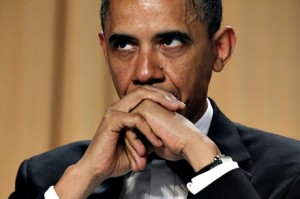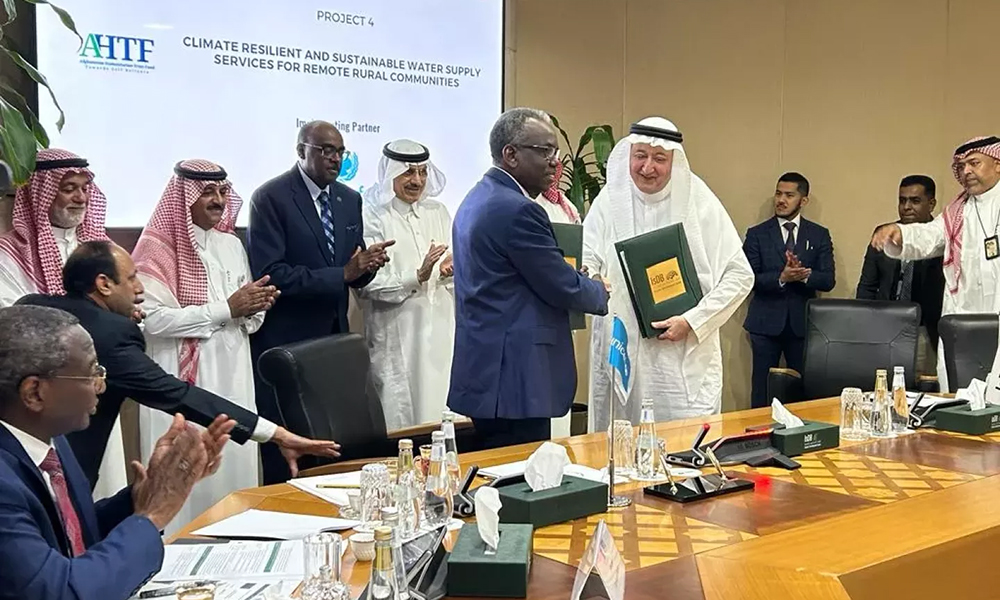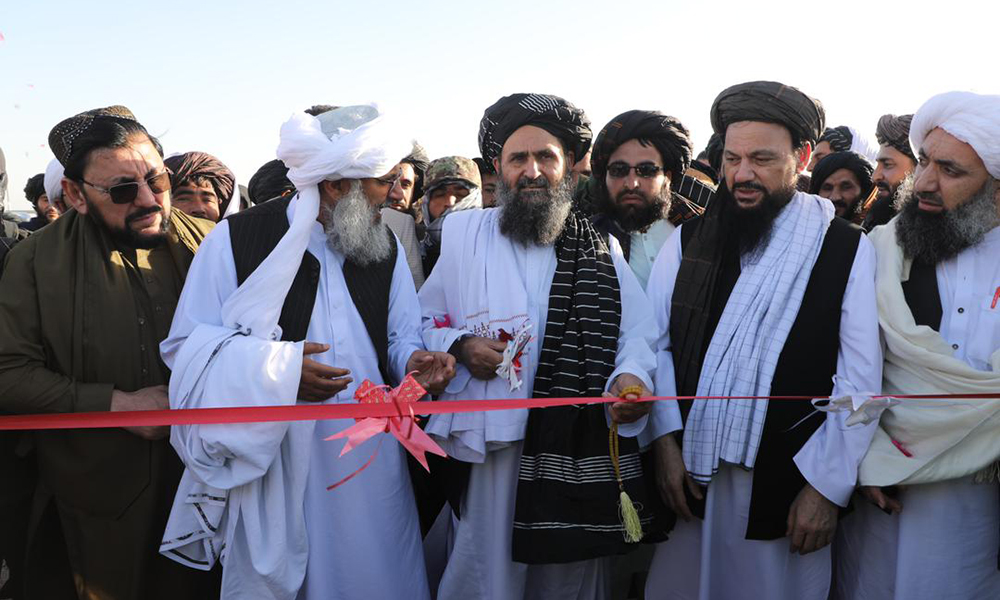Latest News
Ex-President Brack Obama’s 8-Years Policy Toward Afghanistan

 The New York Times in an article evaluates President Obama’s eight-years war strategy and policy toward Afghanistan.
The New York Times in an article evaluates President Obama’s eight-years war strategy and policy toward Afghanistan.
The American Newspaper, New York Times writes the strategy that went from a “good war” to the shorthand “Afghan good enough” reflects the president’s coming to terms with what was possible in Afghanistan.
What Mr. Obama meant was that no one in the Situation Room that day, himself included, thought that the United States — after 14 years of war, billions of dollars spent and more than 2,000 American lives lost — would ever transform Afghanistan into a semblance of a democracy able to defend itself.
“The struggle against violence and extremism, will not be finished quickly and it extends well beyond Afghanistan and Pakistan,” Barack Obama said.
“We have traveled through more than a decade under the dark cloud of war, yet here, in the darkness of Afghanistan, we can see the light of a new day on the horizon,” he added.
More than any other conflict, Afghanistan shaped Mr. Obama’s thinking on the basic questions of war, peace and the use of military power.
It is where he discovered his affinity for drones, sharpened his belief in the limits of American intervention, battled his generals and hardened his disdain for unreliable foreign leaders.
It reaffirmed his suspicions about sending American troops into foreign conflicts and made him reluctant to use more force in Iraq, Syria, Libya and other war zones.
When Mr. Obama took office in January 2009, he ordered a quick policy review on Afghanistan by a former intelligence analyst, Bruce Riedel.
But even before it was completed, he accepted a Pentagon recommendation to send 17,000 additional troops to Afghanistan, bringing the total to nearly 70,000 American troops on the ground.
“That is true that we still have several thousand troops in Afghanistan and it is true that is always dangerous and always tough. Occasionally there have been significant causalities associated with that for the most part, this is now an Afghan fight.”
Now, as Mr. Obama prepares to turn the war over to Donald J. Trump, a leader even more skeptical than he is about the value of American engagement in foreign conflicts.
However, the Afghan parliament evaluates Obama’s policy that US did not want to end war and suppress terrorism in Afghanistan.
“The United States did not want to end war and suppress terrorism in Afghanistan. Since Bush administration till Obama’s governance even now for the Trump, this “Mouse and Cat” policy will continue and it is a policy that will not allow the Afghan government collapse, nor the Taliban gain the victory,” said Aref Rahmani, representative of Ghazni in Parliament.
Dawood Kalakani, representative of Kabul also said, “Barack Obama has not had a successful policy and the war did not end in Afghanistan.”
Mr. Obama was a state senator from Illinois in October 2002 when he famously condemned Iraq as a “dumb war.”
But in the same speech he also said, “I don’t oppose all wars.” He was referring to Afghanistan, which he viewed as a just war to hunt down the perpetrators of the Sept. 11 terrorist attacks.

Latest News
Minister of mines says minerals must be processed in Afghanistan before exported

Acting Minister of Mines and Petroleum Shehabuddin Delawar has said in a meeting with officials of a Chinese company that the export of raw minerals for processing abroad is no longer allowed.
He said the ministry will work with foreign mining companies as long as they also process the minerals in Afghanistan.
Delawar said this during a meeting with China’s state-owned company MCC Holoda, and Chinese officials from the company contracted to extract copper from Mes Aynak.
The Ministry of Mines and Petroleum said in a statement that MCC Holoda is one of the largest mining and processing companies in China for copper, lead and zinc.
According to the statement, the company has expressed an interest in investing in copper, lead and zinc mines in Afghanistan.
Delawar welcomed their interest and said there are lead and zinc mines in Bamyan, Kandahar and Ghor provinces, and if the company agrees to process minerals inside Afghanistan, the ministry will cooperate with it.
Delawar also discussed the Mes Aynak copper project and called for acceleration of work at the mine.
Latest News
Afghanistan Humanitarian Trust Fund report highlights problems tackled

Mohammad Jamal Alsaati, Special Advisor to IsDB President and IsDB Coordinator for Afghanistan Humanitarian Trust Fund (AHTF), said this week that 14 projects, signed in 2023, have materialized at a total cost of $35.35 million.
He said in a statement issued Sunday that of this, $24.14 was from contributions from AHTF with a further $12.21 million provided by implementing partners and other international organizations.
Alsaati said all the services provided have created job and capacity building opportunities for the people of Afghanistan and that as of March 2024, pledges to the fund totaled almost $35 million, with more funding expected.
Alsaati’s comments were in a statement issued by the Islamic Development Bank, (IsDB), after it released the first comprehensive report on the achievements of the AHTF.
The report highlights the coordinated efforts by the IsDB, its partners, and stakeholders towards “Promoting Self Reliance and Resilience” in Afghanistan.
The AHTF’s mission is to provide initial humanitarian aid but then to prioritize development and self-reliance to move beyond emergency assistance – promoting reconstruction, empowerment and sustainable development.
IsDB President and Group Chairman, Muhammad Al Jasser meanwhile said following the release of the report that after receiving generous contributions, the AHTF “sprung into action, delivering essential aid to Afghanistan’s most vulnerable communities.”
He said the fund was able to tackle food insecurity, offer child nutrition programs, provide healthcare, innovative education, clean water, sanitation and hygiene services.
“Our projects are making a tangible difference on the ground,” Jasser said.
The Secretary General of the Organization of Islamic Cooperation (OIC), Hissein Brahim Taha also reacted to the report and said: “We are very pleased to see several humanitarian and development-focused projects are underway in Afghanistan – driven by the IsDB in collaboration with its regional and global partners.
“But much work still lies ahead, so we look forward to further help and support from our Member States, in addition to continued financial assistance for the AHTF from international aid and relief agencies,” said Taha.
The fund was established at a Council of Foreign Ministers of the OIC on 19th December 2021.
Latest News
Baradar visits Pashdan Dam, as work on project resumes

Mullah Abdul Ghani Baradar, deputy prime minister for economic affairs, has said the Pashdan Dam in Herat province is a key national project that the Islamic Emirate is committed to completing as soon as possible.
Speaking at an event marking the resumption of construction on this hydroelectric dam, which was started more than 10 years ago, Baradar said building dams was a priority for the Islamic Emirate.
Once complete the Pashdam Dam will not only generate electricity but also irrigate about 65,000 hectares of agricultural land, in turn providing work to thousands of people.
The dam will cost an estimated $117 million once finished and according to officials, at least 85% of work has been completed.
Officials expect the dam to be operational by the end of this solar year.
The construction of Pashdan Dam is being carried out by a domestic company in cooperation with an Azerbaijani company.
Engineers said the dam will mostly be used for agriculture purposes and for potable water. They also said about 73 kms of canals will be built to irrigate land.
This dam will store 54 million cubic meters of water. Currently, about 400 people are employed to work on the project.
-

 Sport3 days ago
Sport3 days agoAfghanistan beat Iraq 5-3, inch closer to Futsal World Cup berth
-

 Regional3 days ago
Regional3 days agoNew UK sanctions target Iranian drone industry
-

 Regional5 days ago
Regional5 days agoTurkey accuses U.S. of double standards over Gaza in rights report
-

 Latest News3 days ago
Latest News3 days agoEU allocates 17 million euros to support Afghans on the move
-

 Latest News3 days ago
Latest News3 days agoPakistan extends registered Afghan refugees’ stay till June 30
-

 World4 days ago
World4 days agoUS student protests over Gaza intensify despite arrests
-

 Regional3 days ago
Regional3 days agoChina to host Hamas, Fatah for Palestinian unity talks
-

 Sport1 day ago
Sport1 day agoAfghanistan qualify for FIFA Futsal World Cup for first time ever














